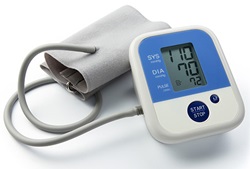Research Funding
Research reported on in this publication was supported by the following grants from the National Institutes of Health (NIH):
Player Athleticism Increases Head Impact Exposure in Youth Football: National Institute of Neurological Disorders and Stroke awards R01 NS094410 and R01 NS082453, National Center for Advancing Translational Sciences grant KL2 TR001421 and the Childress Institute for Pediatric Trauma at Wake Forest Baptist Medical Center.
Diet’s Effect on Gut Bacteria Could Play Role in Reducing Alzheimer’s Risk: Grant P30 AG049638 and award R01 AG055122 from the National Institute on Aging, Department of Defense grant W81XWH-18-1-0118, National Center for Advancing Translational Sciences grant UL1 TR001420 and a grant from the Hartman Family Foundation.
Intensive Blood Pressure Control May Slow Age-Related Brain Damage: NIH Systolic Blood Pressure Intervention Trial, which was jointly funded by the National Heart, Lung, and Blood Institute, the National Institute of Diabetes and Digestive and Kidney Diseases, the National Institute on Aging, and the National Institute of Neurological Disorders and Stroke (HHSN268200900040C, HHSN268200900046C, HHSN268200900047C, HHSN268200900048C, and HHSN268200900049C and interagency agreement A-HL-13-002-001), and the following NIH grants: OD023495, TR000439, RR025755, RR024134, TR000003, RR025771, TR000093, RR025752, TR000073, TR001064, TR000050, TR000005, TR000017, TR000105, TR000445, TR000075, TR000002, TR000064, TR000433, GM103337. Additional funding was provided by the Department of Veterans Affairs. Azilsartan and chlorthalidone (combined with azilsartan) were provided by Takeda Pharmaceuticals International Inc.
Implanted Muscle Fiber Fragments Could Help Heal Injuries, Treat Urinary Incontinence: Department of Defense grant W81XWII-08-1-0333, awarded by the Orthopedics Trauma Research Program.

 A study of youth league football players by researchers at Wake Forest School of Medicine found that higher vertical jumping ability and faster times in speed and agility drills were generally associated with higher head impact exposure, especially in games as compared to practices.
A study of youth league football players by researchers at Wake Forest School of Medicine found that higher vertical jumping ability and faster times in speed and agility drills were generally associated with higher head impact exposure, especially in games as compared to practices.
 In a small pilot study, the researchers identified several distinct gut microbiome signatures—the chemicals produced by bacteria—in study participants with mild cognitive impairment (MCI) but not in their counterparts with normal cognition, and found that these bacterial signatures correlated with higher levels of markers of Alzheimer’s disease in the cerebrospinal fluid of the participants with MCI.
In a small pilot study, the researchers identified several distinct gut microbiome signatures—the chemicals produced by bacteria—in study participants with mild cognitive impairment (MCI) but not in their counterparts with normal cognition, and found that these bacterial signatures correlated with higher levels of markers of Alzheimer’s disease in the cerebrospinal fluid of the participants with MCI. “The relationship of the gut microbiome and diet to neurodegenerative diseases has recently received considerable attention, and this study suggests that Alzheimer’s disease is associated with specific changes in gut bacteria and that a type of ketogenic Mediterranean diet can affect the microbiome in ways that could impact the development of dementia,” said Hariom Yadav, PhD, assistant professor of molecular medicine who co-authored the study with
“The relationship of the gut microbiome and diet to neurodegenerative diseases has recently received considerable attention, and this study suggests that Alzheimer’s disease is associated with specific changes in gut bacteria and that a type of ketogenic Mediterranean diet can affect the microbiome in ways that could impact the development of dementia,” said Hariom Yadav, PhD, assistant professor of molecular medicine who co-authored the study with  Researchers used magnetic resonance imaging (MRI) to scan the brains of trial participants. The results, published in August in the
Researchers used magnetic resonance imaging (MRI) to scan the brains of trial participants. The results, published in August in the 
 “The processing method we developed will help the fragments more readily integrate with the host vascular and neural networks to restore function to patients,” said senior study author
“The processing method we developed will help the fragments more readily integrate with the host vascular and neural networks to restore function to patients,” said senior study author